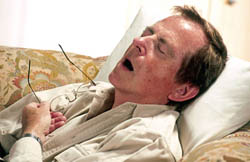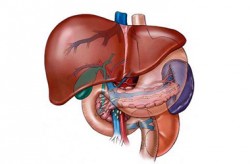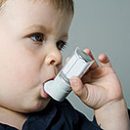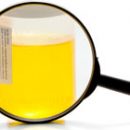Every day, millions of people around the world appeal to dentists. You, dear readers of the magazine of peacetoes, or have already visited the dentist, or contact the future. No people are insured against problems with teeth. If, even, you will actively carry out preventive events at home, there are still cases when you are required to consult a specialist doctor. Many people because of fears accumulated since «Soviet» Dentistry, can not decide to go for help to the dentist. Despite the achievements of modern dentistry in the field of effective anesthesia (anesthesia), the potential patient still have doubts that all procedures in the dental office will be absolutely painless. Each dentist knows that anesthesia is not always unequivocal for each particular person. The approach to the choice of anesthetic doctor is carried out strictly individually. First of all, you need to know the anesthetic composition to understand the principles of the effectiveness of one or another anesthesia.
Anesthetic composition
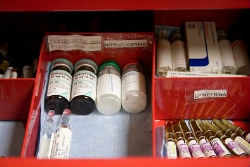
The composition of each anesthetic, of course, is different. Consider the composition of not the most effective anesthetics, such as «Novocaine» and «Lidocaine», which are less used at the reception at the dentist, we will not. It is necessary to understand the components of the common import anesthesia, which is most commonly applied.
Anesthetic.
This is the main active ingredient included in local anesthesia. The composition of modern anesthetics produced in the form of a carpool (for special carpill syringes) or ampoules (less often), as anesthetic is introduced «ARTICIN» or «Mepivacaine hydrochloride».
Vasokonstriktor.
Anesthesia is introduced to enhance the action, as well as to increase the time. In the absence of this component, anesthesia quickly passes, acting a short term. Anesthetics, which included «Mepivacaine hydrochloride», Do not contain vasoconstrictors.
What vasoconstrictors exist? The most common ones are adrenaline (epinephrine) and norepinephrine. Adrenaline allows you to reduce the decline of anesthesia from the place of its introduction, that is, it holds in the injection zone. So, for example, 4% solution «Artics» adrenaline is valid after the introduction of 45 minutes, and without adrenaline - only about 5 minutes. The narrowing of the vessels does not occur, and the active ingredient is displayed from the injection site.
Stabilizers and preservatives.
You, no doubt, have come across these concepts in everyday life when they bought, for example, food. Almost all of them contain preservatives or stabilizers to increase storage time, as well as to protect some components from destruction. With this purpose, EDTA, sulfites and parabens are applied in anesthetics:
- EDTA. The long name of this acid can scare a simple manual, so it is enough to dwell on its use. EDTA protects a vasoconstrictor from the destruction of lead and aluminum by ions, which can stand out from the carpula glass.
- Sodium sulfite. Added to a anesthetic carpool to protect the same vasoconstrictor from the destruction of it with oxygen. By the way, this component is actively used in gardening in order to give fruit during storage. Fresh species.
- Paraben. About this component Special conversation. The use of parabens to protect components inside the ampoule or carpula is carried out only in the anesthetics, which are sent to countries with a hot climate. Therefore, it is used only if necessary, as they represent a strong allergen.
Principles of anesthesia action
In order to understand how effectively anesthesia acts in one way or another, you must first understand the principles of its action.
What is the actual anesthesia?
Anesthesia is a short-term loss of tissue sensitivity after the impact of chemical factors. «Chemical factor» In this case, is anesthetic, which causes the fact that the people call «Freeze». The substance contained in the carpool or ampoule, for example, «ARTICIN» Blocks the transfer of nerve impulses. Irritation signals are not transmitted to the brain. Response response perceived as pain, impossible on the side of the brain, as anesthetic «Envelop» Nervous fiber in the injection zone. After complete destruction of the active substance anesthetic, its action ends and the sensitivity is restored.
Factors leading to impossibility «Alestruction» Tuba
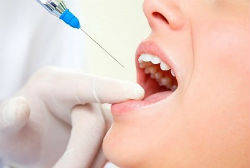
Strong fear of the patient before treatment.
Many patients are panicly afraid of everything that is associated with the intervention on the teeth, so any manipulation that the doctor performs is perceived in an exaggerated form, sometimes it leads to the impossibility of full-fledged «Alestruction» Tuba. Even the slightest discomfort patient perceives like «hellish» pain. Attempts to do «Double» or «Trinoaya» Anesthesia often does not lead to the desired result. Moreover, the above-described adrenaline, generated at such moments, plays no less role than psychological factors, creating obstacles for full anesthesia.
Effect of alcohol.
Some people to cope with the fear, alcohol consume to visit the dentist, so to speak, «for courage». However, the effect of alcoholic beverages is fundamentally interferes not only by the work of the doctor who is forced to cope sometimes with inadequate manifestations of the client, but also does not allow anesthetic to block pain impulse. Sensitivity is possible «put away» only increased doses or can not be eliminated at all. Therefore, with the so-called «acute» Inxication of anesthesia practically does not occur, and «Chronic» Alcoholics to achieve full anesthesia is not possible.
Individual cases of tolerance to anesthetics.
In other words, some people have a certain anesthetic may not affect at all. This situation is especially pronounced in cases «addiction» To the drug. Such moments, compared to the previous two, arise less often, but still meet at the reception at the dentist.
What to do to improve the effectiveness of anesthesia
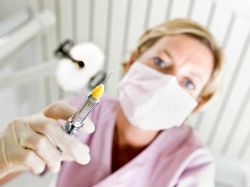
To feel at the reception at the dentist comfortably, you need to adhere to the following recommendations.
Eliminate the fear before visiting the dentist.
Many people cope with fear in different ways, but most do not resort to reasonable and right tools, relying on «AB». Dentists advise before admission to use tranquilizers, that is, drugs causing the nervous system. They remove fear and tension, create a relaxation effect during medical manipulations. Of course, most tranquilizers are drugs issued by recipe. From modern non-prescriptions can be noted, for example, drugs «Tenothen» and «Tenothen childrens». Dentists recommend adults having a high degree of anxiety, take «Tenothen» According to the following scheme. Initially, two tablets are absorbed under the tongue, then two more in five minutes. Take them followed somewhere twenty minutes before the start of reception. People with moderate voltage for effective anesthesia will need only one tablet on the same scheme. For children apply «Tenothen childrens» one tablet for twenty minutes before treatment. The scheme of application of this drug is recommended to coordinate with the attending physician.
Refuse alcohol.
Before visiting the doctor, do not drink alcohol - this is a completely feasible task. You can not apply alcohol to remove stress because it blocks the effectiveness of anesthesia. Also, narcotic compounds create obstacles on the path of resistant anesthesia. Therefore, dear readers, give up the bad habit if you have, before taking. To improve the quality of not only anesthesia, but also of life, it should generally abandon the destructive habit.
Apply another anesthesia In the case of individual tolerance for the drug.
Change anesthetic one on another available in almost any dental office. Moreover, taking into account the large range of modern anesthetics, the choice is always there. Another thing, if the patient is not addictive to a specific drug, and the genetic disorder blocking the efficiency of any local anesthesia. You can offer here only one - anesthesia, that is, a complete immersion in sleep. Such procedures are carried out usually at hospitals.
Let's summarize
You, dear readers of the magazine our site, listening to these recommendations from practicing dentists, can not be afraid to go to the dentist just because anesthesia does not work. If you eliminate the above reasons that can cause such a negative effect, then protect yourself from the absence of adequate «Alestruction». Dentist professional will always find the right way to completely «switch off» nervous conductivity, creating a full comfort atmosphere during the most unpleasant procedures. be healthy!



